
France-South Korea agreement: easier mobility for professionals
On 17 September 2015, France and South Korea signed an agreement facilitating the mobility of professionals and trainees between the two countries, for stays of more than 3 months. Although the agreement was not yet in force, it was amended by a protocol signed on 14 April 2023 in Seoul. The publication of decree no. 2024-447 on 17 May 2024 means that these two texts will soon come into force.
What was the content of the initial agreement? What changes have been made by the protocol? What procedures do Korean nationals need to follow? Let’s tell you more !
Mobility of Korean professionals
The professionals concerned are Korean nationals who enter France (or vice versa) to practice their profession such as:
- functions as a company director or corporate officer,
- an activity as an employee of a company in one of the Member States, transferred in the context of intra-group mobility:
- under a contract of employment with an undertaking, establishment or representative office of the same group established in the other State,
- on secondment to an undertaking or establishment of the same group established in the other State.
Immigration documents required by the initial agreement
The agreement signed in 2015 provided for the issue of a long-stay visa (LSV) to all the categories of Korean professionals defined above. This visa enabled them to obtain a residence permit (RP) valid for up to 3 years and renewable in accordance with national legislation.
To obtain these 2 documents, the purpose of the stay had to be : “to carry out a professional project contributing to the economic development and influence of France and South Korea on account of their skills and talents”.
The initial agreement also facilitated the arrival of the accompanying family:
- Spouses and their minor children could obtain a long stay visa and a “private and family life” residence permit as soon as they arrived in France. The period of validity of the RP corresponded to that of the RP of the professional they were accompanying.
- The parents of the employee and their spouse could obtain a Long Stay Visa with Residence Permit (VLS-TS) valid for one year and renewable once. This measure is specific to Asian culture, which attaches great importance to their ascendants.
Changes brought about by the protocol
The protocol has differentiated the professionals, in order to adapt the measures of the initial agreement according to their profiles.
For company directors, corporate officers and employees transferred under an employment contract, the protocol has extended the period of validity of the residence permit to a maximum of 4 years, and it remains renewable.
The reason for residence giving entitlement to the LSV and RP has been slightly modified by the protocol. From now on, it must correspond to “the realisation of a professional project likely to make a significant and lasting contribution to the economic development, regional development or influence of France and South Korea”.
For employees seconded as part of an intra-group mobility scheme, on the other hand, the protocol now provides for the issue of a LSV and then a residence permit for “carrying out an assignment as part of a secondment to an establishment or company in the group that employs them”.
This qualification is valid for 3 years and is renewable once, regardless of national legislation.
Whatever the profile of the professional, the accompanying family has the same reception arrangements in France:
- The protocol introduced the issue of a VLS-TS bearing the words “vie privée et familiale” (private and family life) to spouses and minor children. The document must be validated by the consular authority within 3 months of arrival in France. It is valid for 1 year, and can be renewed to match the period of validity of the professional’s residence permit.
- The initial measures put in place for the parents of professionals and their spouses have not been modified.
Mobility of Korean trainees
The trainees concerned are :
- Korean nationals taking part in international internship programmes,
- Nationals of one of the States undertaking a work placement in the other State as part of a course of higher education or vocational training.
Immigration documents required by the initial agreement
The initial agreement provided for the issue of a VLS-TS to Korean trainees. It was valid for 1 year, renewable for a maximum of 2 years.
The agreement made no provision for the accompanying family.
Changes brought about by the protocol
The protocol has changed the period of validity of the VLS-TS for Korean trainees. It is still valid for 1 year, but renewable under national law, i.e. for a maximum of 18 months.
The protocol did not add any measures for the accompanying family.
Conditions for issuing immigration documents
The conditions for issuing visas and residence permits, as well as the list of documents to be provided, are defined by the articles of the Code de l’Entrée et du Séjour des Étrangers et du Droit d’Asile (CESEDA – French Law for foreign nationals) for all persons covered by the agreement.
Any changes to the conditions for granting visas and residence permits, as well as to the lists of documents to be provided, are communicated to South Korea by an exchange of verbal notes through diplomatic channels.
Conclusion
The protocol drawn up in 2023 updated the measures in the 2015 agreement. This update took into account the 2016 reform (in particular the introduction of the “talent passport” categories).
It seems that the entry into force of the agreement and protocol is part of South Korea’s accession to the Horizon Europe programme. On 25 March, it was announced that South Korea would be joining the group of countries associated with this programme. This should be effective from 2025.
The entry into force of the agreement will greatly facilitate exchanges of professionals and trainees between the two countries, promoting their development and influence on the international stage.
